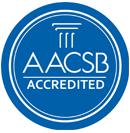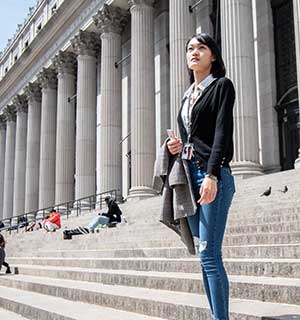
Educating Future Business Leaders
At the Frank G. Zarb School of Business, you will find an academic community that utilizes technology to address our society's many challenges. Students develop critical thinking skills and learn to understand how business and society are often linked and interdependent. Our degree programs and initiatives focus on the topics that affect our communities next door, nationally and abroad, including sustainability, entrepreneurship, finance, healthcare, big data, the role of women in business, and global leadership.
National Recognition
The Zarb School is among an elite group of business schools that have earned dual AACSB accreditation in both business and accounting, with innovative programs nationally recognized by numerous organizations and publications.

The Zarb School of Business participated as one of six schools included in the Innovation in Education chapter of the Leader Generation series, highlighting the University's commitment to preparing learners for success in a dynamic global environment.
Academic Departments
Our five departments offer undergraduate majors and minors and graduate degree programs spanning all disciplines of business.
Accounting
Study accounting to become CPA-licensed, prepare for law school, or jump off to any field of business.
Finance
Study finance a short distance from the financial capital of the world, New York City.
Information Systems and Business Analytics
Learn about big data, business analytics, cybersecurity, healthcare and enterprise systems, web and commerce, and more.
Management and Entrepreneurship
As a student in Management and Entrepreneurship, you will learn how to manage people and functions in all types and sizes of organizations.
Marketing, International Business and Legal Studies
Understand consumer behavior and learn how to use tactics to increase a company's or product's visibility through marketing in a global marketplace.
Graduate Programs
Our nationally recognized graduate business curriculum features flexible study options and global opportunities that elevate critical thinking skills, leadership, connection, and personal growth.
Dual Degree Programs
Earn both an undergraduate and graduate degree in less time (and cost) than if each degree was pursued separately.
Executive MBA
Designed for experienced professionals, the 11-month EMBA features online courses, select on-site classes, and a week-long global experience.
Online MBA
Designed for busy professionals seeking a flexible option for degree and career growth.
STEM Designated
Our MBA core curriculum collectively offers a level of analytical and quantitative skills that are vital to career success. STEM-designated programs at Zarb include:
- All 10 MBA concentrations
- MS in Accounting
- MS in Business Analytics
- MS in Business Operations and Healthcare Analytics
- MS in Cybersecurity
- MS in Finance
For international students, a STEM-designated program allows extended opportunities in STEM-eligible roles at organizations. Students can extend their Optional Practical Training (OPT) by 24 months, for a total of three years without H1B employment visa sponsorship.
Graduate Business Programs
From MBA and MS programs to advanced certifications, choose from a wide range of pathways in graduate education to take your career to the next level.
Graduate Business Career Relations
Our certified career counselors support job search and interview prep, professional networking opportunities, and much more to help students, alumni, and employers succeed.
Resources and Facilities
At Zarb, students work with the same technology, software, and real-time data that business professionals do, and they have access to facilities ranging from one of the largest academic trading rooms in the nation to high-tech classrooms, labs, and centers dedicated to research and innovation in cybersecurity, entrepreneurship, and consumer behavior.
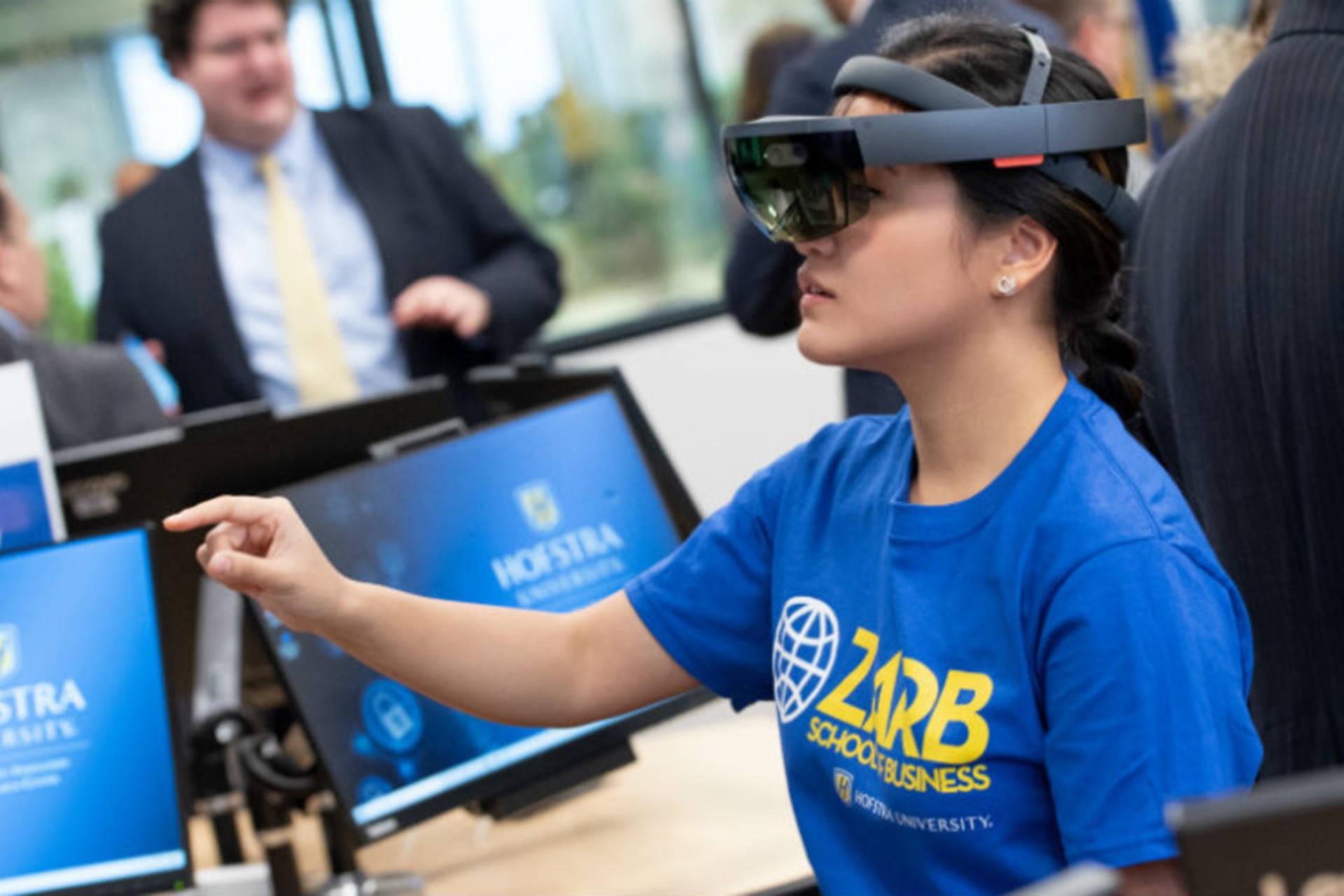
Centers
Our centers offer students opportunities to get practical, professional-level experience, both in class and outside the classroom setting:
- Institute for Innovation and Entrepreneurship
- The Center for International Financial Services and Markets
- The Cybersecurity Innovation and Research Center
Facilities
Our students work in facilities and with equipment and technology that professionals would envy. You'll conduct research using eye-tracking and biometric response technology, create prototypes in a high-tech maker space, work on Bloomberg financial terminals, and explore cybersecurity simulation software, virtual and augmented reality.
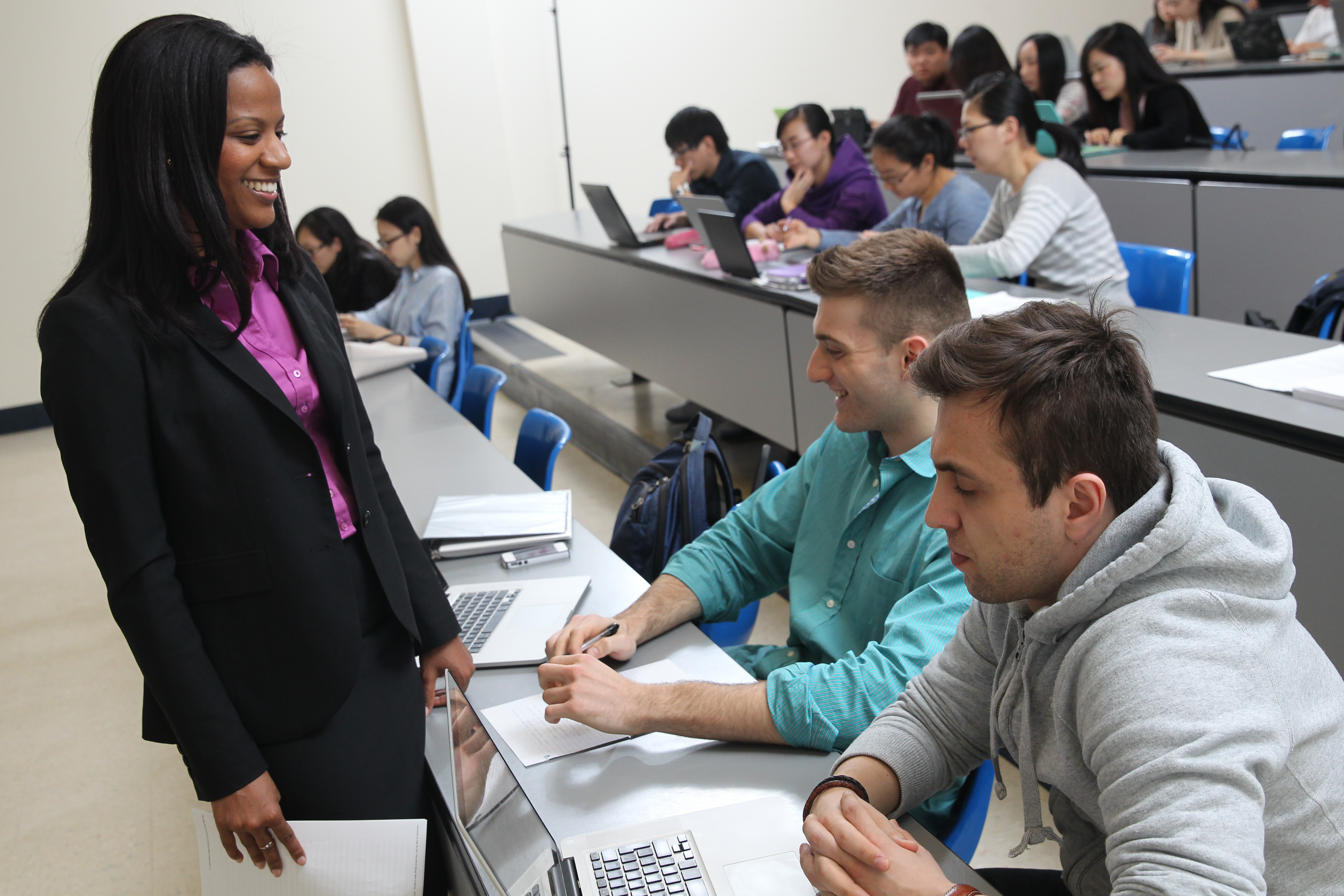
Experts
Our professors are scholars, mentors, and thought leaders who conduct research that shapes strategy for corporate leaders. Many continue to work at the highest level of industry themselves.
Get Involved
Student Experience
Build your resume and leadership skills by joining some of our more than two dozen student organizations and through internships at top companies in New York City, programs that provide international experience (by attending events that bring top CEOs to campus), and community service projects connected to your major.
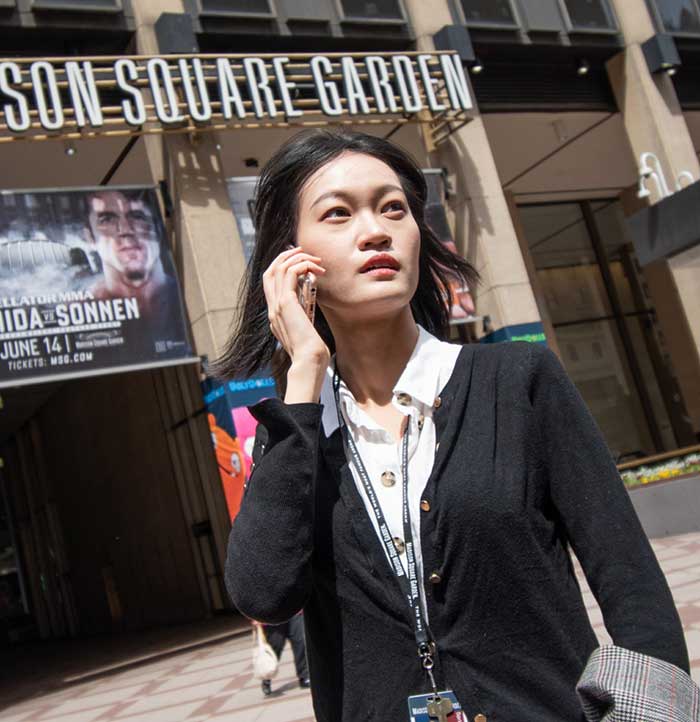
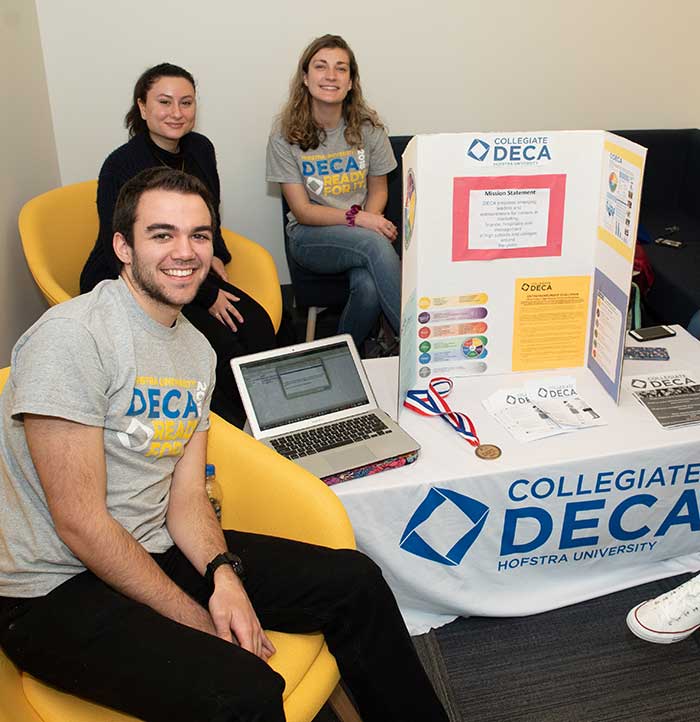
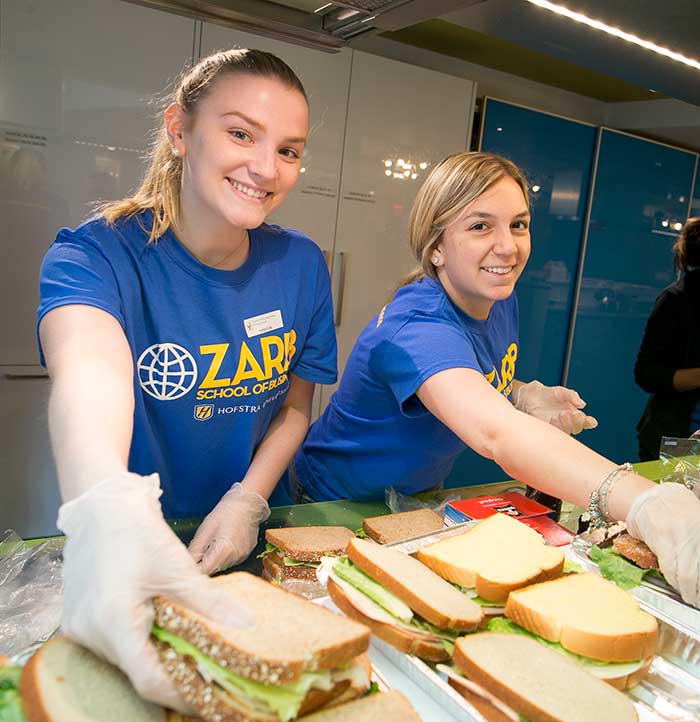
Undergraduate Outcomes
Zarb School of Business students get great jobs in their field, including places like Amazon, Bank of America, Citigroup, Estée Lauder Companies, JPMorgan Chase, KPMG, Northwell Health, The New York Mets, and PricewaterhouseCoopers.
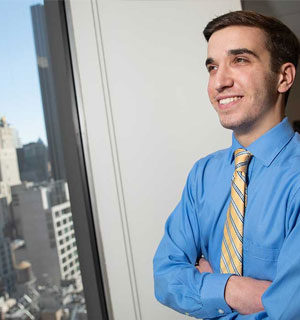
Job &/or grad school within 1 year of receiving a BBA
96%
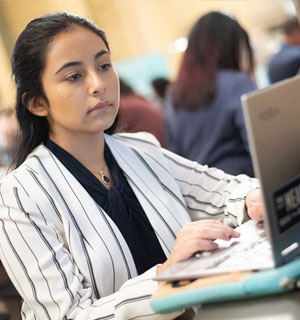
Median annual starting salary with a BBA
$87K
News
| Thursday, 17 April 2025 New President, New Vision: How the Black/Hispanic Alumni Association Is Charting Its Path |
| Wednesday, 16 April 2025 Tariffs and Market Volatility |
| Tuesday, 08 April 2025 Consumer Impact of Tariffs |
Events Calendar
Connect With Us
Subscribe to the Zarb School's weekly email
Contact Us
Our Offices
Leo A. Guthart Hall for Innovation and Discovery
148 Hofstra University
Hempstead, New York 11549
516-463-5678
Email
Social Media
